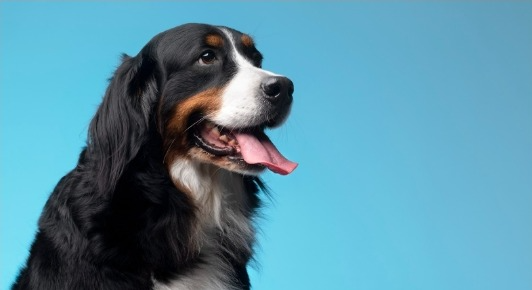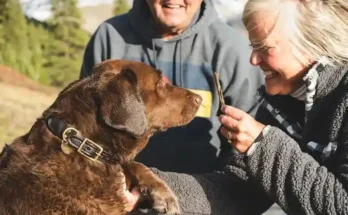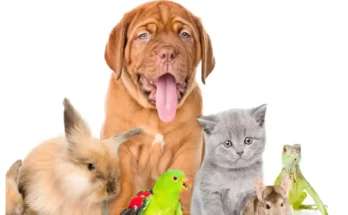Why is my dog drooling so much, please help… Drool, whether drippy, slobbery, or sloppy, is a way of life for certain dog breeds. In truth, all dogs drool from time to time. It’s part of the canine package, like barking or chasing squirrels. But how do you tell if it’s normal or if something more serious is happening?
Saliva is essential for both dogs and humans since it aids in the chewing and digestion of food and keeps our mouths healthy. However, drooling might indicate something more serious, and your dog may require veterinarian care. We’ll look at why dogs drool, whether your dog’s drool is average, how you may help them, and when it’s necessary to call a vet in this post.
Why is My Dog Drooling?: Is Drooling in Dogs Normal?
Why is my dog drooling?… It is common for dogs to drool on occasion. It’s most likely because they’ve seen food or smelled something exciting, but some dog breeds are more prone to drooling than others. However, if your dog is drooling excessively, abnormally, or has other symptoms, this could be a sign of something that requires veterinary treatment. Several possible causes for drooling in sleep need veterinary medicine, like dental problems, poisoning, or heat stroke, so consult a veterinarian if you’re unsure whether you should be concerned. It may be nothing to be concerned about, but it is always better to be safe.
It’s important to remember that “extreme” drooling signifies different things to different dogs; what’s excessive for one dog may be typical for another. Only you will know what is absurd based on your dog’s usual behavior.
What Causes a Dog to Drool? – Why is My Dog Drooling?
A variety of factors could be causing your dog to drool. It could be due to excitement, fear, nervousness, or to the use of certain drugs. Drooling can be a sign of nausea, and if you notice them drooling while driving, it could be related to motion sickness. Dental issues, injury, infection, mouth or lip irritation, or something caught in their mouth, teeth, or throat could all be to fault.
While some drooling is natural, and certain breeds of dog drool more than others (such as St Bernards and bulldogs), drooling can be an indication of an underlying condition that requires veterinarian care. Others, such as poisoning, heat stroke, or having anything lodged in their throat, should be addressed as emergencies. Drooling can also indicate that your dog has consumed a toxin or poison or is suffering from heatstroke. That is why, if you are concerned about your drooling dog, you should always seek guidance from your veterinarian.
Breeds of Dog that Drool
Drool, also known as ptyalism in the medical sector, is an excessive saliva flow accumulated in the mouth/oral cavity. It is frequent in breeds the head/lip conformations cannot retain the drool produced. The additional skin surrounding these dogs’ lips and muzzles allows saliva to gather in the folds. When they shake their heads, it either drips from their large, pendulous upper lips or is launched into the air. Water can also become caught in that loose skin when they drink. Here are several dog breeds that are known for drooling:
- Saint Bernard
- Dogue de Bordeaux
- Bloodhound
- Bulldog
- Newfoundland
- Bernese Mountain Dog
- Bullmastiff
- Boxer
- Great Dane
- Neapolitan Mastiff
Owners of these breeds will have to accept the saliva and be prepared to routinely dry their mouths to keep them clean and prevent irritated skin from the wetness. Of course, excessive drooling in these breeds isn’t always typical, so it’s a good idea to keep note of your dog’s average level of drooling so you can see any concerns if they emerge.
Common Throat and Mouth Problems
Anything that hinders your dog from swallowing can cause drool, as saliva accumulates until it drips from his mouth. Drooling can be caused by tartar buildup, gum inflammation, or an infection in the mouth. A damaged tooth or malignancy in the mouth, esophagus, and/or neck could be the source of the problem. Furthermore, a foreign body can cause slobbering. For example, a sliver of bone wedged between your dog’s teeth or in his throat might be a significant concern.
Brush your dog’s teeth daily and maintain his dental health with yearly veterinary visits (twice yearly for senior dogs). Keep a watch out for yellow or brown plaque deposits on your dog’s teeth and red and swollen gums, which suggest a dental cleaning. Any evidence of a foreign body or lump should immediately prompt you to see your veterinarian.
Stomach Issues in Dogs
Slobbering can be caused by anything that disturbs your dog’s stomach. Because motion sickness is a significant source of nausea, many dogs drool in automobiles. If your dog is car sick, you can desensitize him to vehicle rides and discuss nausea therapies with your veterinarian.
If your dog consumes something he shouldn’t, such as a sock or toy stuffing, it might cause stomach distress and drool. Toxic compounds might also cause drooling. Suppose your dog ingests a deadly plant in the garden or cleaning chemicals under the sink. You may notice drooling and other symptoms such as vomiting, shivering, or lethargy.
Keep an eye out for potential toxins in your home, and if you feel your dog has consumed something hazardous, contact your veterinarian immediately.
Other Possibly Conditions
Drooling indicates kidney failure, liver disease, and even rabies. Drooling is a sign of several various medical disorders. Heat stroke, for example, might cause drooling when your dog’s pants cool off. Your dog may drool after having a seizure. Slobbering can also be caused by a nose, throat, sinus infection, or neuromuscular disorder (palsy, tetany, botulism, etc.).
Although these illnesses will likely show additional symptoms, any change in your dog’s drooling should be taken seriously. In some situations, such as bloat, the condition can be life-threatening, necessitating a trip to the emergency room. Changes in appetite or behavior; neurological signs such as seizures or difficulty standing; retching and vomiting saliva; and changes in your dog’s saliva, such as foul-smelling saliva, thicker saliva, or blood in the saliva, should all be noted. Dog drooling can be caused by a variety of factors, including:
-
- Emotional response (excitement, fear, or nervousness)
- Some drugs have unintended consequences.
- Nausea
- Travel sickness
- Dental issues
- Injury
- Infection
- Irritation of the lips or mouth
- Something caught in their mouth, teeth, or neck could also be the source of the problem.
- Consumed a toxin or poison
- Heatstroke
- Breed temperament
How Do I Help My Drooling Dog?
The best technique to help a drooling dog depends on the cause. If your dog is drooling and you’re unsure what’s causing it, consult a veterinarian. While there may not be cause for concern, it is always best to be safe than sorry.
If your dog is drooling due to stress, you can try to make them as comfortable as possible to reduce their anxiety in particular situations. If fireworks are the reason, learn ways to prepare ahead of time. If people worry about your dog, look into techniques to help socialize them so they can become used to being around strangers. If the anxiousness is causing actual problems, consult with a veterinarian.
If the drooling is caused by motion sickness, minimize your dog’s automobile rides or consult your veterinarian for solutions.
Takeaway
Drooling more than usual may indicate a health problem in any dog. Look for deviations from your dog’s normal behavior and contact your veterinarian to discover a solution.




